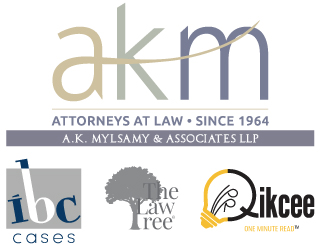Chartering The Future : The EU AI Act – Pioneering
Ethical AI Governance.
Introducing the transformative Al Act, the European Union’s groundbreaking legislation on artificial intelligence. This pioneering framework establishes clear guidelines for Al development, prioritizing trust and ethics while supporting businesses, notably SMEs. By regulating key sectors and ensuring fundamental rights, it fosters responsible innovation and enhances public trust in Al technologies. Despite challenges, its implementation marks a significant leap toward leveraging Al for societal benefit, setting a global standard for ethical Al governance.
Scope: The Act applies to providers of Al systems that are placed on the EU market or used by public authorities.
Classification of the risk: The Regulatory Framework defines four levels of risk for Al systems.

Unacceptable Risk:
Under the “Restricted Risk category, the Al Act prohibits certain actions for Al systems. These include deploying techniques such as subliminal messaging or manipulation to distort behavior, exploiting vulnerabilities related to age or socio-economic status, and inferring sensitive attributes like race or political opinions through biometric systems, unless for lawful purposes. Additionally, social scoring based on personal traits, assessing criminal risk solely through profiling, and compiling facial recognition databases through untargeted scraping are prohibited. Emotion inference in workplaces or educational settings, except for medical or safety reasons, is also restricted. Furthermore, ‘real-time remote biometric identification in public spaces for law enforcement is limited to specific circumstances such as locating missing persons or identifying suspects in serious crimes.
High Risk:
Under the “High-Risk” category, Al systems entail applications in critical infrastructures, education, safety-critical product components, employment management, essential services, law enforcement, migration control, justice administration, and democratic processes. These systems must adhere to stringent obligations:
1. Conducting thorough risk assessment and mitigation.
2. Ensuring high-quality datasets to minimize risks and discriminatory outcomes.
3. Logging activity for result traceability.
4. Providing comprehensive documentation for authorities’ compliance assessment.
5. Offering clear information to deployers.
6. Implementing human oversight measures.
7. Ensuring robustness, security, and accuracy.
All remote biometric identification systems are considered high-risk and require strict compliance. Usage for law enforcement in public spaces is generally prohibited, except in narrowly defined and regulated. circumstances, such as searching for missing persons or preventing imminent terrorist threats. Authorization by a judicial or independent body is
mandatory, with limits on time, geography, and databases searched
Limited Risk:
Under the “Limited Risk” classification, Al systems must comply with basic transparency measures to ensure users recognize interactions with Al and make informed choices. This includes identifying Al-generated or manipulated content like deepfake images, audio, or video. The aim is to promote awareness and enable informed decisions about engagement with Al technologies.
Minimal or no Risk:
Under “Minimal or No Risk, the Al Act permits unrestricted use of low-risk Al, including applications like video games and spam filters. These systems, widely used in the EU, are exempt from additional regulatory oversight due to their minimal risk classification.
General purpose AI (GPAI):
General purpose Al system’ means an Al system that is able to perform generally applicable functions such as image/speech recognition, audio/video generation, pattern detection, question answering, translation, etc, and is able to have multiple intended and unintended purposes. General Purpose Al (GPAI) encompasses Al models capable of versatile performance across various tasks, irrespective of market deployment. GPAI systems, derived from such models, serve diverse purposes directly or within other Al systems. Providers must furnish technical documentation, facilitate integration understanding, adhere to copyright laws, and disclose training data summaries. Systemic GPAI models, determined by compute usage, necessitate further evaluations, risk assessments, incident reporting, cybersecurity measures, and compliance with codes of practice. These codes, developed inclusively, cover obligations and risk management for harmonized standards compliance.
Implementation of the Al Act:
- The Al Act implementation involves establishing the Al Office within the Commission.
- The Al Office monitors compliance of GPAI model providers.
- Downstream providers can report violations to the Al Office.
- The Al Office conducts evaluations of GPAI models:
- To ensure compliance when information is insufficient.
- To investigate systemic risks, especially post expert reports.
The EU’s Artificial Intelligence Act establishes clear rules to foster Al innovation while safeguarding fundamental rights and values. Harmonizing regulations enhances Europe’s leadership in ethical Al globally. However, challenges in implementation and enforcement require thoughtful governance to strike a balance between innovation and public safety.
About the authors :

Ms. Subathra Mylsamy BA.MA.BL.LLM (UK)
Managing Partner
A.K.Mylsamy & Associates LLP

Ms. Subathra is an experienced Partner with a demonstrated history of working in the legal services industry. Ms. Subathra is skilled in International Law, Legal Assistance,Legal
Research, and Legal Writing. Ms. Subathra has done her Master of Laws (LLM) focused in International Business law from The University of Manchester.
Brief Profile of Ms. Subathra Mylsamy :
Ms. Subathra Mylsamy can be contacted at :
About A.K.Mylsamy & Associates LLP :
A.K.Mylsamy & Associates LLP [‘AKM’], is a distinguished Full-Service Corporate Law Firm celebrating its 60th year of practice.
At AKM, we offer a comprehensive range of services encompassing Litigation, Advisory, and Transactional expertise.Evolving our services to meet the needs of our clients, we’ve pioneered in corporate law as a one stop destination covering Commercial, and Civil Law, with a keen focus on Mergers and Acquisitions, Structuring, Recoveries, Insolvency & Bankruptcy, Direct and Indirect Taxes, handled by a seasoned team of former ‘Indian Revenue Service’ officers. Additionally, we excel in Contracts, Intellectual Property Rights to Technology laws, Cyber security , Data Privacy, Energy and Sustainability laws and many more.
A.K.Mylsamy & Associates LLP is a strong foundation of quality, competency, commitment and ethics, which have translated into the firm’s exponential growth and high reputation. Our team of experts, who have enviable experience in their related fields, provides efficient and prompt delivery of legal solutions that works best for your business.
A.K.Mylsamy & Associates LLP set very high standards of professionalism for ourselves and achieve the same with a meticulous, scientific approach and a high degree of professional integrity. We seek long-term relationships with clients and provide the best comprehensive solutions.
Team A.K.Mylsamy & Associates LLP
A.K.Mylsamy & Associates LLP Partners Profile
A.K.Mylsamy & Associates LLP can be contacted at :
LinkedIn | FaceBook | YouTube | Website | Website2
A.K.Mylsamy & Associates LLP News Letters :
” The Lawtree “ is a News Letter brought out in a simple and creative manner bringing out Legal Updates for the public awareness. ” The Lawtree “ has recently Published there 100th Edition.
![]()
“QIkcee” one minute read is an exclusive Intellectual Property Newsletter.
 Disclaimer: The above Article is for educational purposes only. Opinions or points of view expressed in this article represent the view of the author.
Disclaimer: The above Article is for educational purposes only. Opinions or points of view expressed in this article represent the view of the author.













